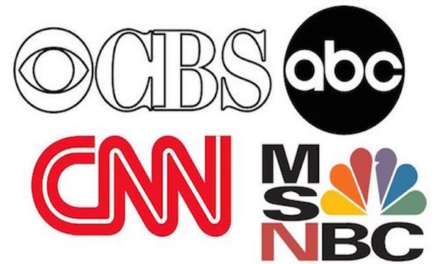We support our Publishers and Content Creators. You can view this story on their website by CLICKING HERE.
Boeing’s turbulent year ends in tragedy as South Korea’s deadliest plane crash sparks global scrutiny and shares drop
- Jeju Air Flight 2216 crash in South Korea killed 179, marking the deadliest plane crash in the country’s history.
- South Korea ordered emergency inspections of all Boeing 737-800 aircraft following the incident.
- Boeing’s shares dropped 4% premarket, continuing a 30% decline in 2024 amid ongoing safety and financial crises.
- The crash adds to Boeing’s troubled year, including a 737 Max 9 door blowout and unresolved labor and regulatory issues.
- Critics question if Boeing’s focus on diversity and inclusion has compromised safety and oversight standards.
The world was rocked this weekend by the deadliest plane crash in South Korea’s history, a tragedy that has further tarnished the already beleaguered reputation of Boeing, the American aerospace giant. The crash of Jeju Air Flight 2216, a Boeing 737-800, claimed the lives of 179 people, leaving only two survivors.
The incident has prompted South Korea’s acting president, Choi Sang-mok, to order an emergency inspection of all Boeing 737-800 aircraft operating in the country. Meanwhile, Boeing’s shares have taken yet another hit, continuing a downward spiral that has plagued the company throughout 2024.
The crash occurred at Muan International Airport on December 29, when the 15-year-old aircraft skidded off the runway and collided with a concrete barrier, triggering a catastrophic explosion. Initial reports suggest a possible bird strike or landing gear failure as the cause, but the exact circumstances remain under investigation.
Adding to the concerns, another Jeju Air 737-800 experienced a landing gear malfunction just hours later, forcing it to return to Seoul’s Gimpo International Airport. These back-to-back incidents have raised serious questions about the safety and reliability of Boeing’s aircraft.
Boeing’s mounting crises
This latest disaster caps off a year of relentless challenges for Boeing. The company has been grappling with a series of high-profile safety issues, financial struggles, and labor disputes. In January, a door panel blew off an Alaska Airlines 737 Max 9 mid-flight, reigniting fears about the safety of Boeing’s flagship aircraft. This incident followed the two fatal crashes of 737 Max jets in 2018 and 2019, which killed 346 people and led to a global grounding of the model.
Boeing’s troubles have only deepened since then. A seven-week machinists’ strike in the fall disrupted production, and the company has faced ongoing scrutiny from regulators over its safety culture. In July, Boeing agreed to plead guilty to conspiracy to commit fraud for misleading Federal Aviation Administration (FAA) regulators during the certification process for the 737 Max. However, a federal judge rejected the plea deal, citing concerns about diversity, equity, and inclusion (DEI) policies influencing the selection of compliance officials.
The company’s stock price has plummeted by more than 30% this year, reflecting deep investor unease. The South Korean crash has only exacerbated these concerns, with Boeing shares dropping 4% in premarket trading on Monday.
Critics argue that Boeing’s recent struggles are symptomatic of a broader cultural shift within the company, one that prioritizes diversity and inclusion over merit and expertise. Some industry observers have suggested that Boeing’s focus on these policies may have diverted attention from its core mission: building safe, reliable aircraft.
The judge’s rejection of Boeing’s plea deal highlighted these concerns, raising questions about whether DEI considerations could compromise the integrity of oversight mechanisms. This debate underscores a growing tension between corporate social responsibility and the need for rigorous safety standards in industries where lives are at stake.
A call for accountability
In the wake of the South Korean crash, Boeing faces renewed pressure to address its systemic issues. The company’s leadership has already undergone significant changes, with CEO David Calhoun stepping down in August. However, these efforts may not be enough to restore public trust.
South Korea’s decision to inspect all 737-800 aircraft is a prudent step, but it also serves as a stark reminder of the global repercussions of Boeing’s missteps. As investigations into the crash continue, the aviation industry and the public will be watching closely to see whether Boeing can finally turn the page on its turbulent chapter.
For now, the families of the victims are left to mourn, and the world is left to wonder: Can Boeing regain its status as a leader in aviation, or will its legacy be defined by tragedy and failure?
Sources for this article include:

 Conservative
Conservative  Search
Search Trending
Trending Current News
Current News 





